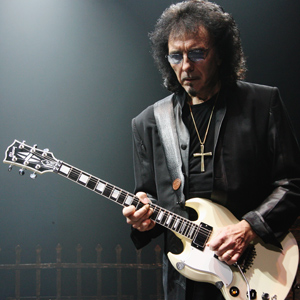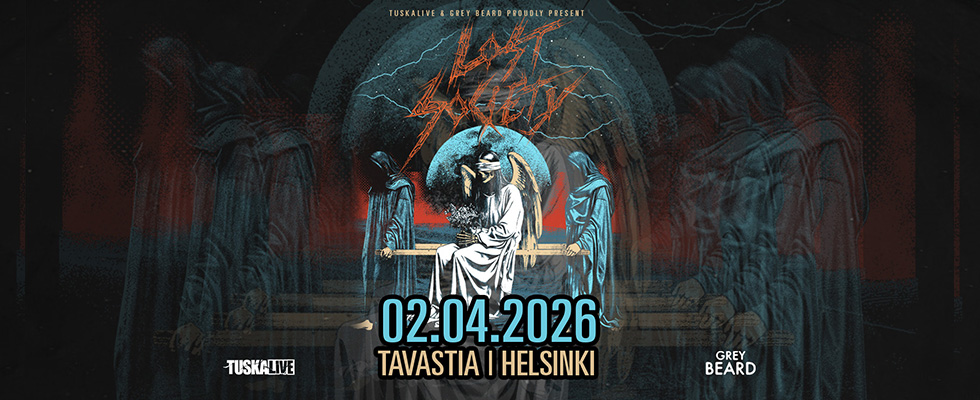Black Sabbath -kitaristi kommentoi terveydentilaansa
 Black Sabbathin kitaristina tunnetuksi tullut Tony Iommi on kommentoinut terveydentilaansa taannoisessa Mirrorin tekemässä haastattelussa. Vuoden 2012 alussa Iommille todettiin lymfooma eli imusolmukesyöpä. Black Sabbath oli tuolloin juuri aloittanut uusimman ”13”-albuminsa tekemisen. Albumi saatiin kuitenkin kaikesta huolimatta valmiiksi ja siitä tuli Yhdysvalloissa yhtyeen kaikkien aikojen ensimmäinen listaykkönen. Levyn julkaisua seurasi 81 keikan pituinen maailmankiertue, joka järjestettiin Iommin syöpähoitojen mukaan. Haastattelussa Iommi kommentoi muunmuassa kyseisen kiertueen järjestelyitä ja sen raskautta, diagnoosin saamista, syöpähoitoja, sairastumisesta johtuneita elämäntapamuutoksia, Ozzy Osbournelta ja koko yhtyeeltä saamaansa tukea sekä jäljellä olevaa elinaikaansa. Tässä muutama ote haastattelusta:
Black Sabbathin kitaristina tunnetuksi tullut Tony Iommi on kommentoinut terveydentilaansa taannoisessa Mirrorin tekemässä haastattelussa. Vuoden 2012 alussa Iommille todettiin lymfooma eli imusolmukesyöpä. Black Sabbath oli tuolloin juuri aloittanut uusimman ”13”-albuminsa tekemisen. Albumi saatiin kuitenkin kaikesta huolimatta valmiiksi ja siitä tuli Yhdysvalloissa yhtyeen kaikkien aikojen ensimmäinen listaykkönen. Levyn julkaisua seurasi 81 keikan pituinen maailmankiertue, joka järjestettiin Iommin syöpähoitojen mukaan. Haastattelussa Iommi kommentoi muunmuassa kyseisen kiertueen järjestelyitä ja sen raskautta, diagnoosin saamista, syöpähoitoja, sairastumisesta johtuneita elämäntapamuutoksia, Ozzy Osbournelta ja koko yhtyeeltä saamaansa tukea sekä jäljellä olevaa elinaikaansa. Tässä muutama ote haastattelusta:
”It was a relief to be working on the album because it gave me something to focus on instead of sitting there waiting to die. Some days I could join in, other days I felt too ill. But the band knew it would be like that. Ozzy was actually really helpful. It was good to have someone around who had experienced it all before because you always fear the worst when you talk about cancer. Ozzy went through a lot of that stuff when Sharon had colon cancer and it spread to her lymph nodes.”
”I had to change my whole lifestyle, including in the studio. We laugh about how different it was this time. In the good old days there was cocaine everywhere. This time we had tea and coffee and health drinks that my wife, Maria, made for me because I’ve had to change my diet.”
”After we released the album we went on tour and played 81 shows in 28 countries. I really enjoyed it, but it was tough. After the illness I got really tired. Every six weeks I had to fly home for treatment at the Parkway Hospital in Solihull, just outside Birmingham. I was hooked up to a drip and given an antibody that sort of coats the cancer cells and stops them spreading. Then I had to be home for two or three weeks recovering before I could join up with the band again. We had to plan the whole tour around my treatment.”
”The surgeon told me he doesn’t expect the cancer to go away. There’s a 30 per cent chance that it could, but more than likely it will come back and it could be any time. I look at life differently now. I could be here another 10 years or just one year – I don’t know. Sometimes I wonder if I should try to live a more peaceful life. Then I think, ‘I don’t want to let the illness take over’. After all, I enjoy where I’m at now.”



